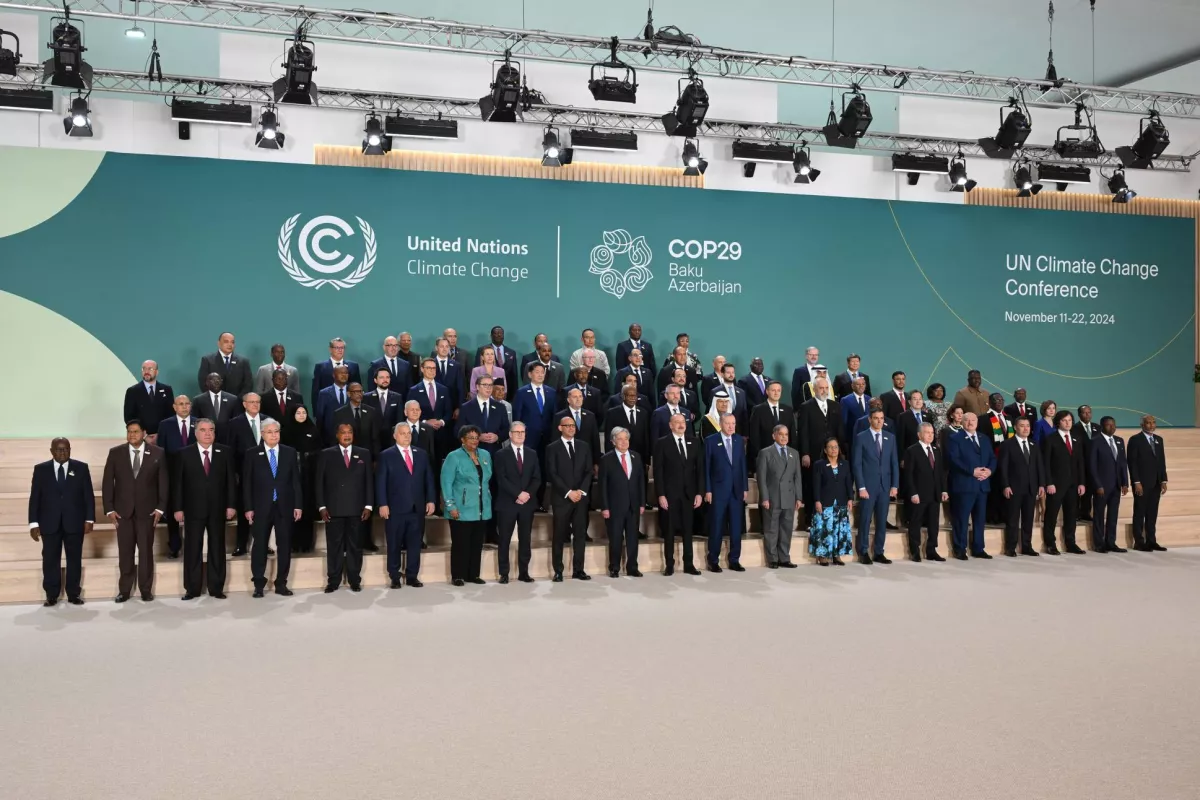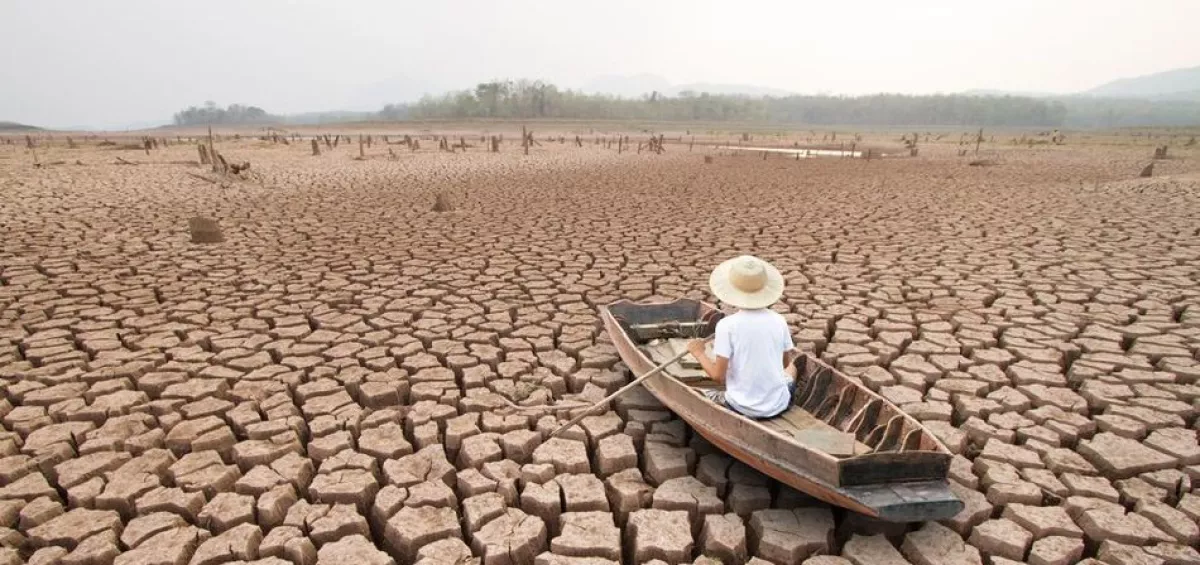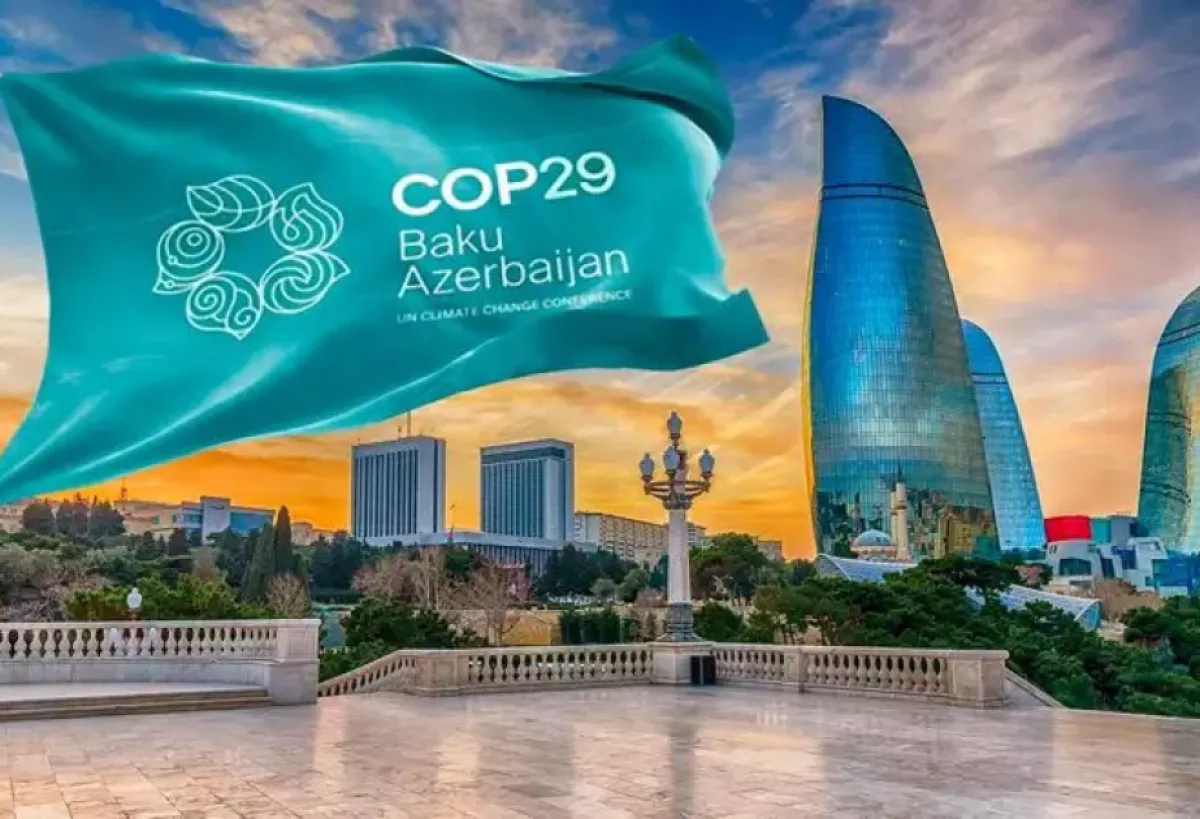COP29: Confronting climate crisis amid global power struggles Negotiations on preserving life
The UN Climate Conference in Baku highlights how even issues critical to humanity's survival can become tools in the conflicts between superpowers and their allies. The West emphasizes climate topics while pushing Russia out of hydrocarbon markets. In response, Russia collaborates with Western politicians like Germany's Alternative for Germany (AfD), who question the validity of global warming. For most countries—especially in the Global South, which bears the brunt of climate change—these are issues that leave no time for debate or entanglement with other agendas.
Azerbaijan has taken up the cause of defending these universal interests, stepping into a role of global leadership by engaging with the genuine, rather than self-proclaimed, international community. Shielding climate issues from attempts at marginalization and fostering serious discussions on this topic in Baku became possible thanks to the Azerbaijani government's responsible approach to shaping the global agenda and Azerbaijan's growing authority on the international stage.
An unprecedented forum
The 29th session of the Conference of the Parties to the UN Framework Convention on Climate Change (COP29), convened in Baku, has been held annually since 1992. However, its routine name should not mislead anyone. In today’s fraught international climate, hosting any global event is akin to a miracle. Even crucial mechanisms for transparency in military activities, like the Vienna Document, have been dismantled, and organizations such as the OSCE and the Council of Europe have lost their last vestiges of functionality.
The issue extends beyond the escalating conflicts among major global powers and even the internal crises shaking Western nations—from Donald Trump's election in the United States to the collapse of the ruling coalition in Germany. The real problem lies in the pseudo-moral hysteria that, cloaked in slogans of “human rights” or “traditional values,” masks a deeper irresponsibility—a refusal to find common ground for coexistence on this shared planet.
Yet, Azerbaijan succeeded in gathering not only representatives from nearly 200 countries but also influential leaders in Baku. The conference welcomed leaders from nations pursuing multi-vector diplomacy, such as Türkiye and Saudi Arabia, as well as top officials from major "Collective West" countries like the United Kingdom and Italy. At the same time, Russian Prime Minister Mikhail Mishustin and Belarusian President Alexander Lukashenko also participated in the forum.

From the very start of COP29, a clear confrontation emerged between global blocs. Countries of the Global South, including China, India, and a coalition of African states, pushed for prioritizing funding measures to combat and mitigate the effects of climate change. Indeed, without substantial financial commitments, the entire climate agenda risks devolving into mere rhetoric. However, the collective West opposed this approach. Their current focus has shifted toward rapidly growing military expenditures, leaving little room for substantial climate financing.
Western nations instead demanded that the forum prioritize phasing out fossil fuels. In diplomatic terms, this translated into efforts to gain support for convincing other countries—especially those reliant on Russian oil and gas—of the necessity to transition away from these energy sources. Predictably, US liquefied natural gas (LNG) in Europe is still spoken of in glowing terms. As Hans-Thomas Tillschneider of Germany's Alternative for Germany party recently remarked, "It used to be said that Germany should no longer import gas from Russia because we are a country undergoing an energy transition. Now, we are a country undergoing an energy transition because Germany should no longer import gas from Russia."
Despite these divisions, COP29 participants in Baku managed to agree on a compromise wording regarding the prioritization of climate financing and the transition from fossil fuels.
At the start of the conference, no agreement was reached on another contentious issue: the European Union's use of climate concerns as a tool in global politics. Leading emerging economies, spearheaded by China and India, called for a discussion on the West’s adoption of “unilateral trade-restrictive measures” under the guise of environmental responsibility. Specifically, they criticized the EU's plans to implement the so-called Carbon Border Adjustment Mechanism (CBAM). This policy, they argued, would allow the EU to evade its commitments to free trade by imposing restrictions on disfavored countries, primarily targeting China, under the pretext of addressing climate concerns. Ultimately, however, this topic was removed from the agenda.
A challenge that cannot be ignored
At first glance, the situation surrounding international measures to address climate change appears increasingly complex. Across Europe—from Poland to Italy and Germany—political movements opposing the dominance of Brussels bureaucracy are also targeting the EU's climate initiatives, particularly the so-called "Green Deal." This policy has faced criticism for its controversial consequences, including the deindustrialization of Eastern Europe.
Across the Atlantic, the Trump team has already drafted several executive orders on environmental protection, including plans for the United States to withdraw once again from the Paris Climate Agreement. The US initially exited the accord in 2020 but rejoined the following year under new leadership.
The growing polarization around climate policies underscores a stark reality: finding consensus on global climate action remains a daunting, yet unavoidable, challenge.
In October, it was revealed that there were insufficient funds even to finance the secretariat of the United Nations Framework Convention on Climate Change (UNFCCC). This body organizes annual climate negotiations involving all countries and facilitates the implementation of agreements. For this year, the shortfall amounts to approximately €57 million, largely because some countries fail to pay even the minimal contributions expected of them.
Delays in funding this year were unprecedented in the history of the UNFCCC. As a result, its headquarters in Bonn reduced working hours, and several regional events were cancelled. This is happening despite the pressing nature of climate issues, as evidenced by successful regional summits in Kenya and Malaysia last year, which managed to attract billions of dollars in investment commitments for climate action projects.

The global community will not be able to simply dismiss the climate agenda as an ideological whim of a fading era. This is not a value-based philosophical debate. Climate change on Earth is becoming increasingly difficult to ignore. Significant salinization of the Atlantic, melting ice in Antarctica with penguin die-offs, or even another mass coral extinction around the world—such phenomena can still be somewhat overlooked by the "Collective West" (and the East, too), often reduced to "talks for the sake of the poor." However, nature and the laws of physics ultimately assert their power.
A stark example of this came earlier this month when one of Europe’s key countries, Spain, was forced to carry out the largest military and police deployment in peacetime—several full army brigades—due to flooding that claimed the lives of more than 200 people. The flooding occurred after unprecedented rainfall, with more than 300 litres of rain per square meter falling in a matter of hours in the most affected area of Valencia. This is a consequence of climate change. Another example can be found in the almost routine mass evacuations in the U.S. when cyclones approach—sometimes affecting millions, as seen this fall with Cyclones Milton and Helena. Despite the evacuations, the latter still claimed 250 lives!
Countries in the Collective West, located in higher latitudes, are now beginning to suffer from the consequences of climate change, which have already affected many parts of the world much earlier. For instance, in October, the renowned American journal Science reported a 60% increase in the intensity of wildfires globally since 2001, with a particular rise in the boreal forests of Eurasia and North America. One factor contributing to this is the accelerated rise in temperatures in high northern latitudes, where climate change is causing temperatures to increase twice as fast as the global average. This process is also affecting other major global players, such as China. For example, this summer, China's Ministry of Emergency Management reported a doubling of economic losses from natural disasters compared to the previous year.
A financial and existential question
Yet, the existential question of saving life on Earth remains buried beneath a pile of financial considerations—there is an impression that some politicians and financiers are ready to monetize humanity’s very survival.
The COP29 conference will run for almost two weeks, from November 11 to 22, and perhaps its main goal is to approve the new scale of global climate financing and to update the emission reduction targets for each country.

In 2009, it was decided to allocate $100 billion annually for climate change mitigation and its consequences during the 2020-2030 period. However, in practice, this amount has been reached only once, in 2022. Now, countries of the Global South are proposing to increase this sum to $1 trillion per year. The debates revolve around whether private financing should be included in this amount, as well as who should contribute to the climate funds—only the countries of the Global North, essentially the Collective West, which created the problem through its industrialization and the barbaric exploitation of half the world, and by persistently spreading its questionable socio-economic and political model? Or should other rapidly developing countries, primarily China and the Gulf States, also contribute?
Securing even modest commitments on this issue, which can no longer be considered merely a task for preserving civilization but rather for the survival of humanity, would be a step away from the abyss we currently face. Any such agreement among the world’s nations in Baku would also be a step away from the threat of global conflict, the shadow of which looms on the horizon.
However, much more needs to be done to seriously address this fundamental issue—and it is not just about the money, but the very attitude of the world’s powers toward the world itself, toward an international order based on the hegemony of a few and the "laws of the jungle." Through the lens of climate issues, the flaws of the current world order, the socio-economic model, and certain political concepts championed by the Collective West become glaringly obvious. These concepts simply do not allow humanity to seek solutions to the most basic problem—survival—let alone development. Therefore, today in Baku, the conversation is nothing less than about the future of humanity. Or its absence.








